首頁 » Courses » College of Humanities and Education » Graduate School of Education
Graduate School of Education
Graduate School of Education – Distance Education Theories and Practices
Course Name | Distance Education Theories and Practices | ||||||||||||||||||||||||||||||||||||||||||||||||||||||||||||||
Course ID | TA124r | Course credits | 3 | Teaching hourly fee | 3 | ||||||||||||||||||||||||||||||||||||||||||||||||||||||||||
Teacher | Chien Chih-Feng | Department/Grade | Graduate School of Education | Required/Elective course | Elective | ||||||||||||||||||||||||||||||||||||||||||||||||||||||||||
1 | Type of Service (Multiple options allowed) | ■ Educational counseling ■ Information technology □ Creative design □ Community development □ Marketing and promotion ■ Social service □ International care □ Cultural archives □ Environmental protection □ Others ____________________ | |||||||||||||||||||||||||||||||||||||||||||||||||||||||||||||
2 | Recitals (Evaluation on Service Programs) | In the policies of Ministry of Interior in 2013, one of the focuses referred to the “network for helping the disadvantaged groups and well-founding social welfare” was boosted in order to enable Taiwan to become a nation caring cultures and humanities. CYCU is one of the partnership universities enrolled into the “Digital Learning Within Online Tutoring Service Plan” of Ministry of Education. For the time being, it provides the online course counseling service to six junior high schools and elementary schools in remote areas. The application for the Plan, Chien Chih-Feng, helped the online tutoring service plan and felt that the orphanage children also needed the course counseling and care. Therefore, Teacher Chien plans to implement the distance education online in the “Distance Education Theories and Practices” taught by him in the Graduate School of Education, CYCU at the 1st semester of 2016, and provides service to the children of Reindeer Private Children’s Home in Taoyuan County to achieve the purpose of online counseling, teaching and escort. The course integrates the MOOCs, flip education and synchronized distance education, which are the most popular in the education sector, to allow students to practice the course counseling on the site to teach the children of Reindeer Private Children’s Home in a remote manner and, therefore, learn how to integrate technology into teaching and upgrade the teaching and technological application skills through provision of services. In order to upgrade the autonomy of community-entity, we will try the one-to-many education this semester to allow the orphanage children to learn cooperation, and to teach undereducated and undereducated but inspirable children with the high-level education. Given the increasing need for fellow university students, this will be an experimental opportunity and will build the foundation for future community development. | |||||||||||||||||||||||||||||||||||||||||||||||||||||||||||||
3 | Objectives of Plan | 1. Build the digital learning environment and train IT-related skills; 2. Online course counseling to strengthen the disadvantaged students’ competitiveness; 3. Make good use of the University’s plentiful resources to exert the University’s integration mechanism; 4. Enable students to understand the sense of integration of IT into teaching and teaching into services. | |||||||||||||||||||||||||||||||||||||||||||||||||||||||||||||
4 | Cooperative entities | Name of Organization or Community receiving the service: Reindeer Private Children’s Home | |||||||||||||||||||||||||||||||||||||||||||||||||||||||||||||
Service Recipient: Orphanage children; number of service recipients: 15 persons (Not the number of trainees) | |||||||||||||||||||||||||||||||||||||||||||||||||||||||||||||||
5 | Objectives of Courses | 1. Understand the sense of integration of IT into teaching and teaching into services; 2. Design the courses integrating IT into teaching; 3. Upgrade the professional knowledge about integration of IT into teaching; 4. Learn the software about installation of videos, paperwork and network; 5. Utilize the distance education to upgrade teaching and course counseling. | |||||||||||||||||||||||||||||||||||||||||||||||||||||||||||||
6 | Model and contents of implementation of service programs (Introduction to the contents of courses for 18 weeks on a weekly basis) |
(Please added the lines, if necessary.) | |||||||||||||||||||||||||||||||||||||||||||||||||||||||||||||
7 | Total service learning hours | Total course hours: 48 hours Students’ actual service hours: 16 hours Number of student teams: a total 5 teams, consisting of 15 persons. Total number of service recipients: 150 persons (number of service recipients*number of frequency). | |||||||||||||||||||||||||||||||||||||||||||||||||||||||||||||
8 | Descriptions about expected students’ growth in professions | 1. Contact and verify the disadvantaged students’ difficulty in learning; 2. Learn about the skills about integration of IT into service and teaching; 3. Upgrade the morality, sense of responsibility, and self-expression ability. | |||||||||||||||||||||||||||||||||||||||||||||||||||||||||||||
9 | Anticipated benefits to be gained the service recipient | 1. Upgrade the orphanage children’s positive attitude toward learning; 2. Feel the social heartwarming care and act positively toward their life; 3. Increase the experience in interpersonal relationship. | |||||||||||||||||||||||||||||||||||||||||||||||||||||||||||||
10 | Rating criteria (Please include the way to assess service programs.) | 1. 30% for service learning. 2. 30% for integration of IT into teaching. 3. 30% for teaching demonstration. 4. 10% for attendance to the class. | |||||||||||||||||||||||||||||||||||||||||||||||||||||||||||||

